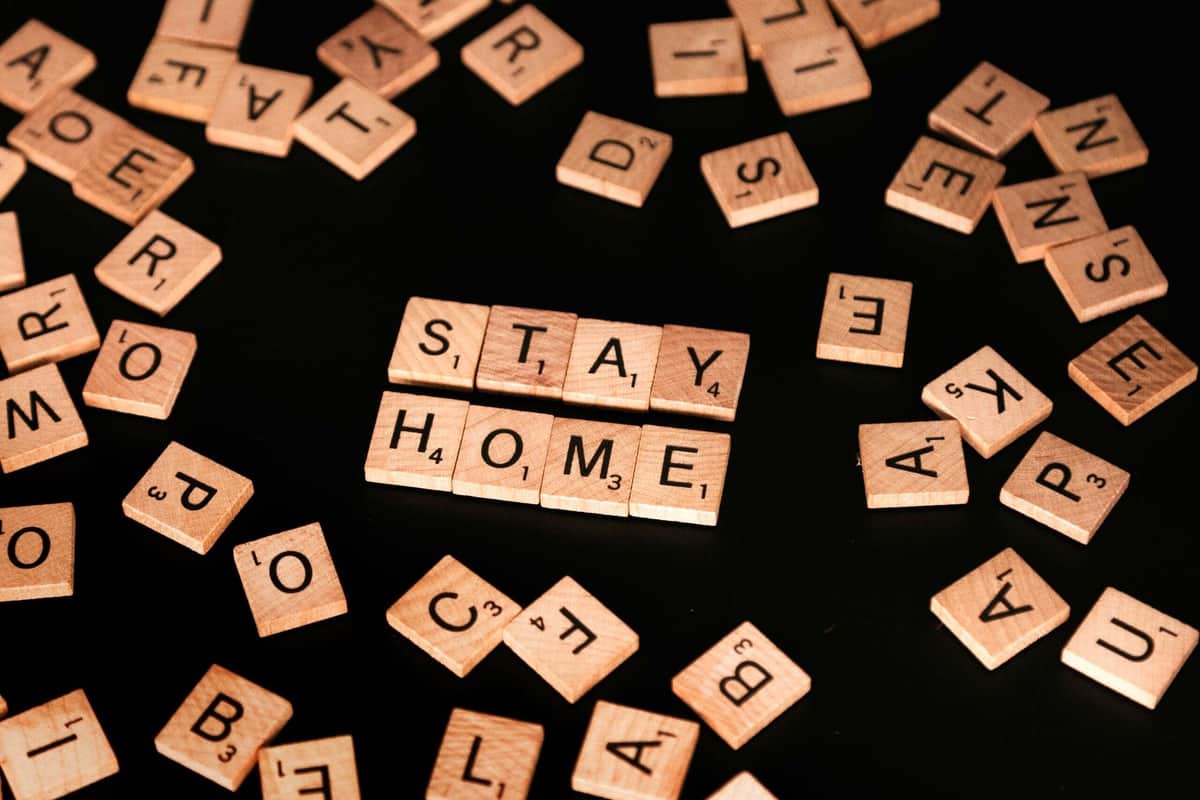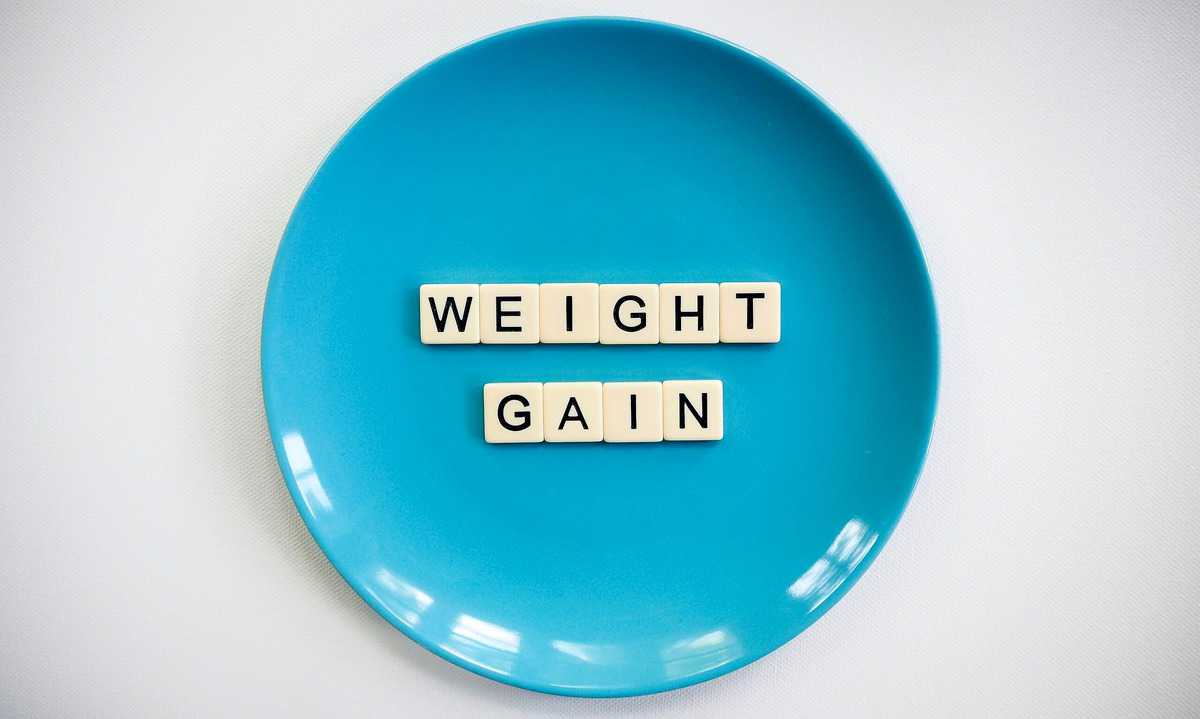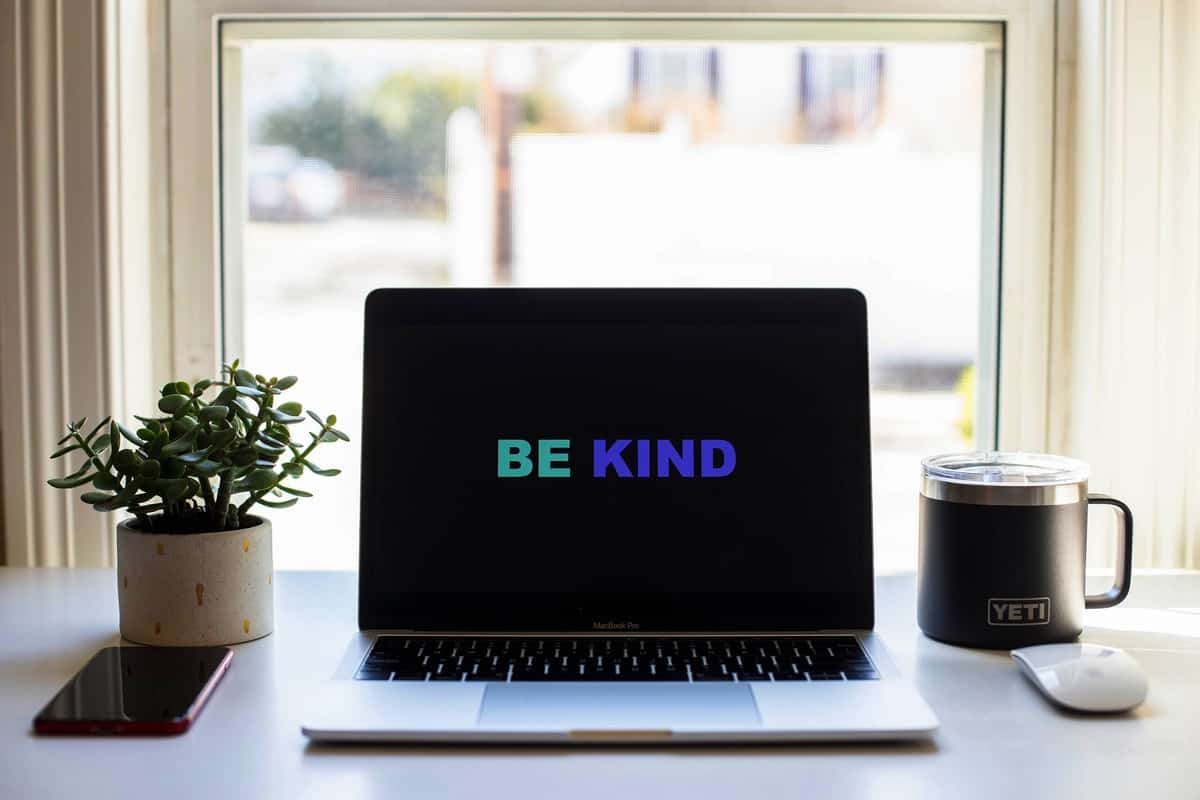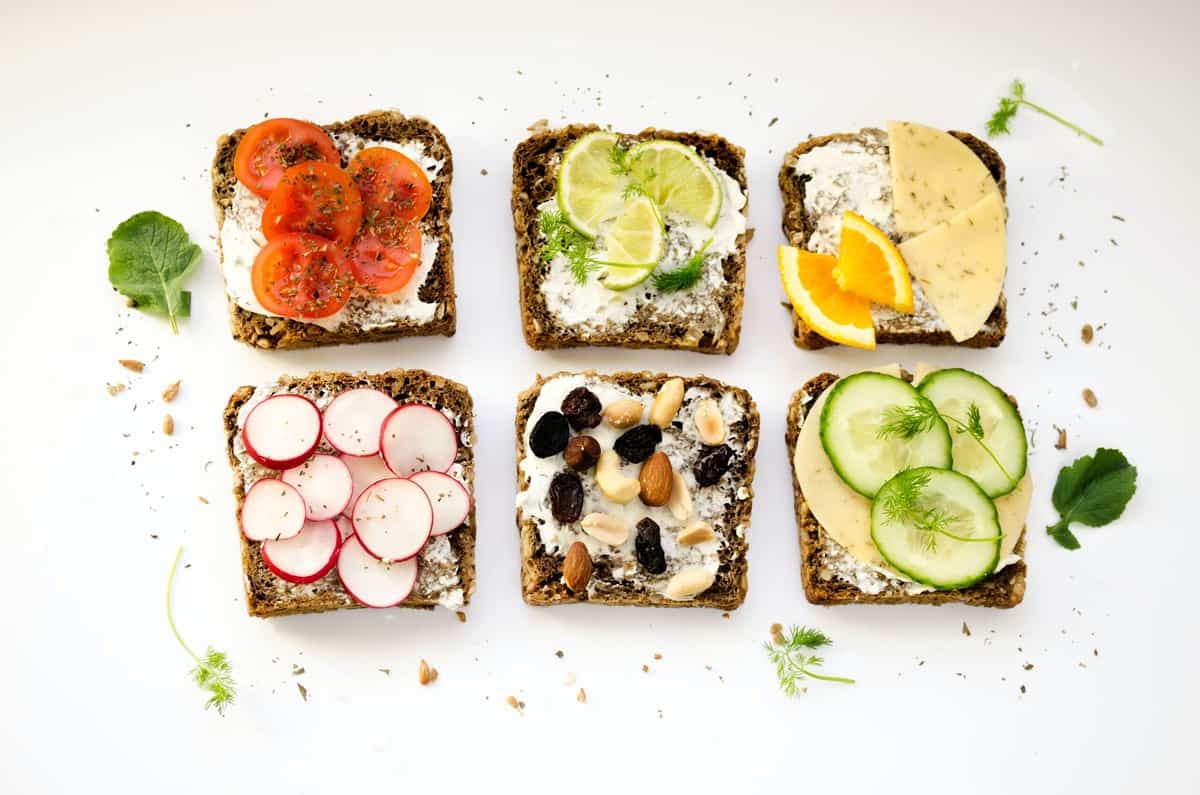We discuss the link between stress and quarantine weight gain and share six gentle tips on how to get yourself back on track.

It’s no question that this has been a challenging year for all of us and that the effects of the pandemic have impacted our mental health in one way or another. With increased levels of stress as well as more time spent being sedentary and in isolation, we are definitely seeing an impact on our mental wellbeing. In fact, a survey by Statistics Canada found that about 1 in 5 Canadian adults reported experiencing depression, anxiety, or posttraumatic stress disorder (PTSD) during the onset of the pandemic.
When we experience increased levels of stress and anxiety, it is common to turn to food for comfort. However, now that our routines are totally flipped upside down our relationship with food and the body may also feel like it is being put through the ringer, with many individuals reporting struggling with overeating and quarantine weight gain. In fact, one U.S. study found that 61% of Americans reported undesired weight changes since the start of the pandemic.

This is not surprising as research has shown that increased stress can alter eating behaviours, impact our motivation to exercise, and increase the likelihood to use food to cope with stress. With that said, if you are struggling with quarantine weight gain and/or your relationship with food during this time, know that you are not alone. In fact, it is totally and completely NORMAL to experience these effects given how straight up banana’s our lives have become. But if you need a little guidance on how to manage your relationship with food and quarantine weight gain during these times, these 6 gentle nutrition tips may make all the difference for your overall wellbeing – including your physical, mental, and emotional health.
1. Be Gentle with Yourself

First and foremost – be kind and compassionate with yourself. Despite being in isolation and dealing with quarantine weight gain, remember that this isn’t an experience you are going through alone and we are all in this together. It is also okay to not feel your best or totally productive all day every day. Remember, we are living through a freaking pandemic and the emotional effects can be extremely draining. Try not to be too hard on yourself if you can’t keep up with your workout routine or you don’t have the energy to prepare a healthy meal every day. Sometimes a rest day and take-out are all you can muster and that is a-okay.
Ask yourself – how can you bump up the self-care during days that are particularly challenging? This could mean going to bed a little earlier, taking a social media break, going for a walk in nature, taking a long shower or bath, calling a friend, or anything else that can help to ground you and relieve some anxiety.
It can also be helpful to focus on little things to feel grateful for – whether it’s a sunny day, the first sip of your morning coffee, hugging your pet, trying a new recipe, or quite simply just making it through your day. Research has even shown that gratitude can have a positive impact on mental health and improve feelings of overall happiness. So perhaps starting or ending your day by writing a few things you are grateful for may help to shift your mindset in a positive way.
2. Eat Foods That Improve Mood

While it is important to aim to eat a variety of foods (even comfort foods), we do know that there is a link between what we eat and our mood. This is because the foods we eat provide the building blocks needed to create the neurotransmitters in the brain responsible for our mood – this includes neurotransmitters like serotonin, dopamine, GABA, norepinephrine, and endorphins.
Protein-rich foods in particular are essential for mood as they contain the amino acid tryptophan which is needed to develop the “happy hormone” serotonin. You can obtain protein from animal-based foods such as lean meats and dairy, as well as plant-based foods such as nuts, seeds, tofu, and legumes. With that said, aim to include a protein-rich food at every meal and snack.
B-vitamins are also essential in the production of dopamine and serotonin and research has found a link between low levels of B vitamins and symptoms of depression and decreased cognitive thinking. This is particular true for deficiencies in specific B vitamins such as thiamine, niacin, folate, and B12. Luckily, B vitamins are found in a variety of foods including lean meats, citrus fruits, dark leafy greens, nuts and seeds, as well as whole grains. Therefore, aiming for a variety of foods is key.
A healthy gut has also been gaining a spotlight when it comes to mental health as the brain and gut are closely connected – this is also known as the gut-brain axis. In fact, 90% of our serotonin is produced in the gut. In addition, our gut microbes are also involved in producing the neurotransmitter GABA, which helps to regulate feelings of stress and anxiety.
More research has been pointing to the benefits of “psychobiotics” (otherwise known as probiotics that affect the brain) as some probiotic strains may improve symptoms of depression, anxiety, and stress. Therefore, aim to consume probiotic rich foods such as yogurt, kefir, kimchi, and miso. In addition, you can also support your gut health by eating prebiotic rich foods (i.e. bananas, artichoke, garlic, asparagus, garlic), drinking enough water throughout the day, and consuming a variety of high-fiber foods like fruit, vegetables, whole grains, nuts, seeds, and legumes.
3. Engage in Joyful Movement

When it comes to gaining a few lbs from quarantine weight gain, your knee jerk reaction may be to go a little harder in your workout routine or to increase the frequency of your exercise in order to drop the weight. While this may or may not be effective for your overall weight loss goals, engaging in exercise for the sole purpose of getting smaller may actually have more negative implications for your mental health.
What I mean by this, is that when your intention behind exercise is strictly goal driven (in this case, weight loss) and the method by which you intend to reach these goals is unsustainable, you may be setting yourself up for increased feelings of stress and low self-esteem if you are unable to reach your goals. In other words, working out like a mad woman may not guarantee weight loss and may leave you feeling more miserable in the process as a result – and we obviously want to avoid anything that will make us feel even MORE stressed out in the current pandemic climate.
With that said, try to shift your mindset from being goal-drive to purpose-driven. This means, thinking about the intention and bigger picture when it comes to movement and how it should feel. Ask yourself – what type of movement will make me feel good right now? Not just physically, but also mentally.
- Do you want to feel relaxed and at ease? Maybe try a yoga flow or go for a gentle walk outside.
- Do you want to feel energized and more alert? Perhaps going for a run or doing an at home HIIT workout may be just what you need.
- Do you want to blow off some steam and move yourself into a good mood? Throw on your favourite tunes and dance it out.
Find a way of moving that is sustainable, easy to implement, and makes your body and mind feel good. Moving your body should absolutely NOT feel like a punishment. Also, remind yourself that even small progress, is progress. Let the weight loss land where it lands without setting an arbitrary weight loss goal, but instead enjoy the process and soak up all the joy and “feel good” benefits of your movement.
4. Explore Other Coping Mechanisms

While food can absolutely offer comfort during a period of stress (and there is no shame in that), it should not be your only coping mechanism. This pattern can be particularly hard to break especially for emotional eaters or those with binge eating tendencies. If you are struggling with emotional eating and binge eating during the pandemic you can check out my blog post here.
Regardless of whether or not you are an emotional eater, I encourage you to explore other coping mechanisms that don’t involve food. This can look different for everyone, but some common coping mechanisms might include:
- Relaxation in the form of yoga, meditation, bathing, listening to music, reading, spending time in nature etc. – basically any activity or outlet that will help you feel at ease
- Seeking emotional support from a friend, family member, or therapist
- Establishing healthy boundaries (i.e., taking social media breaks)
- Engaging in physical activity
As you explore what other coping mechanisms might work for you, when you DO turn to food for comfort, ask yourself:
- What is the intention?
- Will this make me feel good – emotionally and/or physically?
For example, reaching for a few spoons of Ben & Jerry’s ice cream may not make you feel good physically, but it may offer some emotional benefits if it provides comfort. On the other hand, you can also try to incorporate foods or meals that have both emotional AND physical benefits. For me personally, this might look like a veggie loaded pasta with a yummy sauce, pancakes topped with a generous portion of berries, or fish tacos with all the fixings.
5. Self-care over self-control

The pandemic has all of use feeling like we are losing our sense of control given how precarious things have become. One of the ways in which we will often seek to reduce stress is to try to regain our sense of control. However, because we have a lack of control over external factors, our sense of control can often turn inward and manifest itself as self-control over our food intake and body size.
But in order to be gentle with ourselves (as per tip #1) and take care of our mental well-being, we must approach food and exercise from a place of self-care rather than self-control. Like I’ve said, it is important to tune into how food and exercise makes you feel, both on a physical and emotional level, rather than how it makes you look.
When it comes to approaching food from a self-care lens, you should aim to feel nourished and satisfied. Explore your *why* with your food choices and consider whether your food decisions feel balanced and flexible, or if they feel rigid and restrictive. For example, this can look like eating a salad for lunch because you know that it will nourish your body and make you feel good physically, rather than making the decisions from a place of restriction with the intention to lose weight.
6. Focus on Overall Health

Our health exists on a spectrum and despite what diet culture wants you to believe, your health is not defined by your weight. Unfortunately, the predominate message we receive around health is that it should involve restricting food and exercising more. Unfortunately, this message becomes even LOUDER when it comes to quarantine weight gain.
However, this can cause a disconnection between food and the body because when we focus solely on weight as a measure of health, we lose sight of our mental health needs and overall wellness. Since we don’t want to compromise our mental health, we should aim to put less emphasis on weight and focus on other measures of health instead. This can include things like sleep quality, stress management, water intake, moving your body, eating a balanced diet, connecting with loved ones etc.
Ask yourself:
- What else can you focus on beside weight?
- What else can give you a sense of control or comfort?
- What else makes you feel healthy?
- What else makes you feel connected?
This is not to say that you can’t strive towards a weight loss goal, but it should not be your only goal or means of optimizing your health – pandemic or no pandemic. Try to approach your health and wellness routine with a holistic approach that encompasses more than one measure of health, whatever that may look like for you.
Bottom Line
I just want to reiterate that it is normal to feel less than optimal right now – whether that means feeling down in the dumps or feeling uncomfortable in your body from quarantine weight gain. Which is why now, more than ever, exploring new ways to give ourselves a little extra love and establishing healthy routines can make all the difference. By focusing on healthy and sustainable behaviours, we can reap the benefits for both the body and mind without letting a weight loss goal steer the ship.
Written by Giselle Segovia RD MHSc
More Blog Posts You Might Like
- How to Stop Emotional Eating While In Isolation
- Intuitive Eating Weight Loss? Sustainable Gentle Nutrition Tips
- How to Reach Your Health Goals While Social Distancing
Updated on August 3rd, 2021

Abbey Sharp is a Registered Dietitian (RD), regulated by the Ontario College of Dietitians. She is a mom, YouTuber, Blogger, award winning cookbook author, media coach specializing in food and nutrition influencers, and a frequent contributor to national publications like Healthline and on national broadcast TV shows.




Morena says
Thank you for these tips! We really need them in this tough time (again!).
Food is one of my coping mechanism so to try and keep my sanity I’ve tried to explore some new ones and other than exercising (which I love) I started reading, drawing, knitting and now I’m taking up also cross stitching! Even if I’m not very good, the process to create something with my own hands really makes me feel good!